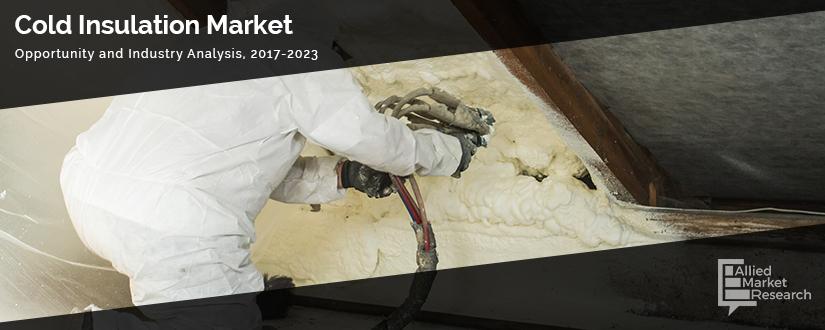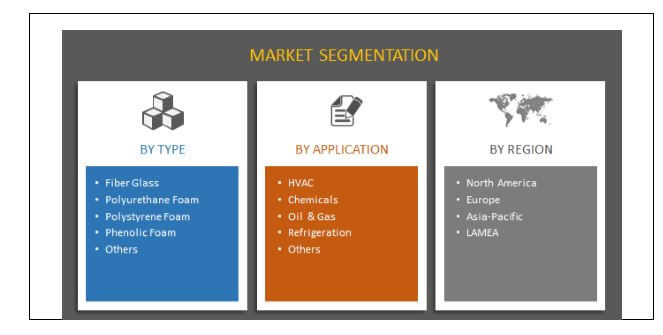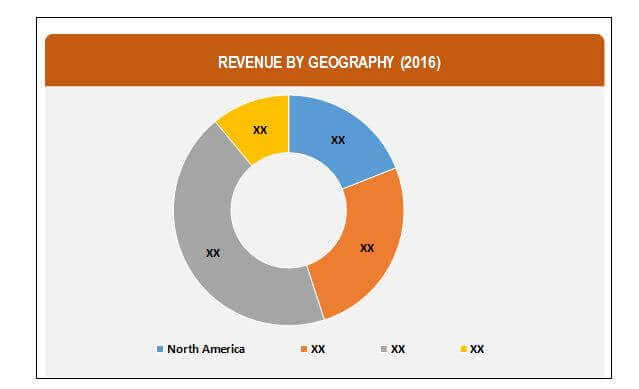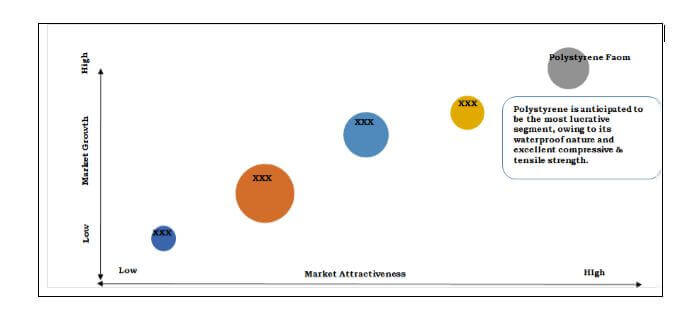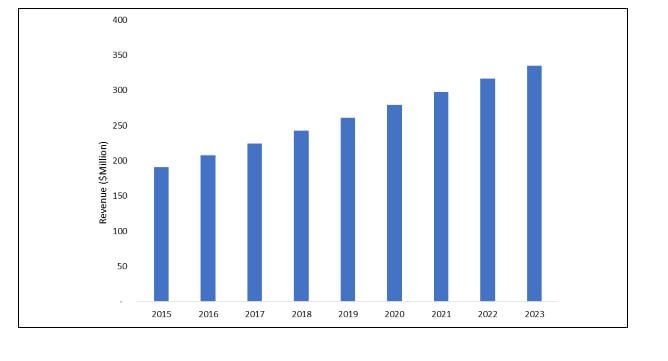Cold Insulation Market Overview:
Cold Insulation Market size was valued at $4,321 million in 2016, and is anticipated to reach $7,243 million by 2023, registering a CAGR of 7.4% from 2017 to 2023. Cold insulation is a process that provides a material or a blend of two or more materials used to avoid heat loss or heat gain to conserve the valuable energy. Thermal insulation is used for energy conservation, while cold insulation is used for the temperature below the ambient threshold, which is capable of preventing condensation, moisture intrusion, and long-term degradation. Cold insulation material is a closed structure used to avoid wicking in a system where it is installed by acting as a barrier to heat flow. These are adopted in a wide range of applications to maintain low temperature for process control, avoid surface condensation, and conserve refrigeration. The types of materials used for cold insulation are fiber glass, polyurethane foam, polystyrene foam, phenolic foam, and others. Presently, the use of cold insulation has increased in the recent years, owing to its ability to protect the environment from greenhouse gases and increase the efficiency of these system where it is installed. Moreover, the market is driven by rise in its demand in oil & gas industries and favorable government regulations regarding environmental protection. However, lack of awareness about cold insulation materials could hamper the market growth during the forecast period.
The report emphasizes on the types of materials used for cold insulation, which include fiber glass, polyurethane foam, polystyrene foam, phenolic foam, and others. Based on application, the market is classified into HVAC, chemicals, oil & gas, refrigeration, and others. The cold insulation market is analyzed based on four regions, namely North America, Europe, Asia-Pacific, and LAMEA. In addition, the report highlights the factors that could impact the growth of the market and the role of different key players in the value chain. It presents the quantitative data in terms of both value and volume, which have been obtained from secondary sources, such as company publications, Factiva, Hoovers, OneSource, and others. The validation of data has been done by C-level executives and directors of the companies operating in the industry.
Global Cold Insulation Market Segmentation
Asia-Pacific is the leading and highest growing region in the global cold insulation market, in terms of both value and volume. However, Europe has witnessed the second highest growth rate, owing to the favorable climatic conditions of most of the European countries and favorable government regulations promoting thermal and cold insulation for energy conservation.
Cold Insulation Market Share, By Geography, 2016
Top investment Pocket
Polystyrene foam is the most lucrative segment in the market, followed by polyurethane foam and fiber glass. Polystyrene is a waterproof thermoplastic foam, which is an excellent temperature insulation material. It is widely used in various applications due to its superior compressive and tensile strength.
Top investment Pocket
Asia-Pacific Cold insulation Market Scenario
Asia-Pacific witnessed the highest demand for cold insulation materials, owing to the increase in population, industrial expansion, and growth in construction industry in this region. In 2016, China dominated the Asia-Pacific cold insulation market, in terms of both value and volume.
Korea Cold Insulation Market Size, 2015-2023 ($Million)
The key players profiled in the report are BASF SE, Dow Chemical Company, Huntsman Corporation, Bayer Material Science, Armacell International S.A., Evonik Industries, Aspen Aerogels, Dongsung FineTec Co., Ltd., Certain Teed Corporation, and Kingspan Group PLC.
The other major players (not profiled in report) in the market include Owens Corning, Pittsburgh Corning Corporation, Combi Isolatie B.V., Arabian Fiberglass Insulation Co. Ltd., Fletcher Insulation Pty Ltd., KAEFER, Mag Hard Insulators, Novisol, Thermax, and International Corrosion Services LLC.
Key Benefits of the Cold Insulation Market Report:
- The report provides an in-depth analysis of the forecast along with the current and future market trends.
- This report highlights the key drivers, opportunities, and restraints of the Cold Insulation Market along with the impact analyses during the forecast period.
- A comprehensive analysis of the factors that drive and restrain the Cold Insulation Market growth is provided.
- The qualitative data in this report aims on market dynamics, Cold Insulation Market trends, and developments.
- The Cold Insulation Market size is provided in terms of volume and revenue.
Cold Insulation Market Report Highlights
| Aspects | Details |
| By Type |
|
| By Application |
|
| By Geography |
|
| Key Market Players | BASF SE, ASPEN AEROGELS, KINGSPAN GROUPS PLC., CERTAIN TEED CORPORATION, ARMACELL INTERNATIONAL S.A., BAYER MATERIAL SCIENCE, EVONIK INDUSTRIES, HUNTSMAN CORPORATION, DONGSUNG FINETEC CO., LTD., DOW CHEMICAL COMPANY |
Analyst Review
Cold insulation is a process that provides a material or a blend of two or more materials that could be used to avoid heat loss or heat gain to conserve the valuable energy. Insulation materials have the ability to protect the environment from greenhouse gasses. Cold insulation technique is used for cold conservation or prevention of condensation. These are adopted in a wide range of applications, to maintain low temperature for process control, avoid surface condensation, and for maintenance of refrigeration. These are used in various applications such as chemicals, oil & gas, refrigeration, and others.
In 2016, the polyurethane foam segment held the highest share, accounting for more than one-third share of the global market. Polyurethane exhibits unique properties, such as lightweight, low thermal conductivity, low water absorption, good strength, and high chemical resistance. It is ideal for handling low thermal conductivity and substances stored at below freezing temperature. Polyurethane foam emits low smoke and provides low water vapor permeability. The oil & gas application segment accounted for the highest market share in 2016, with two-sevenths share of the global market. The refrigeration segment is projected to grow at the highest CAGR of 7.9% during 2017 to 2013.
Asia-Pacific is the most prominent market for cold insulation, in terms of both revenue and volume. China is the major consumer of cold insulation materials in the region, and is expected to maintain this trend throughout the forecast period. Moreover, the emergence of bio-based and renewable material-based insulation are expected to provide lucrative growth opportunities to the market players in the near future.
Loading Table Of Content...

